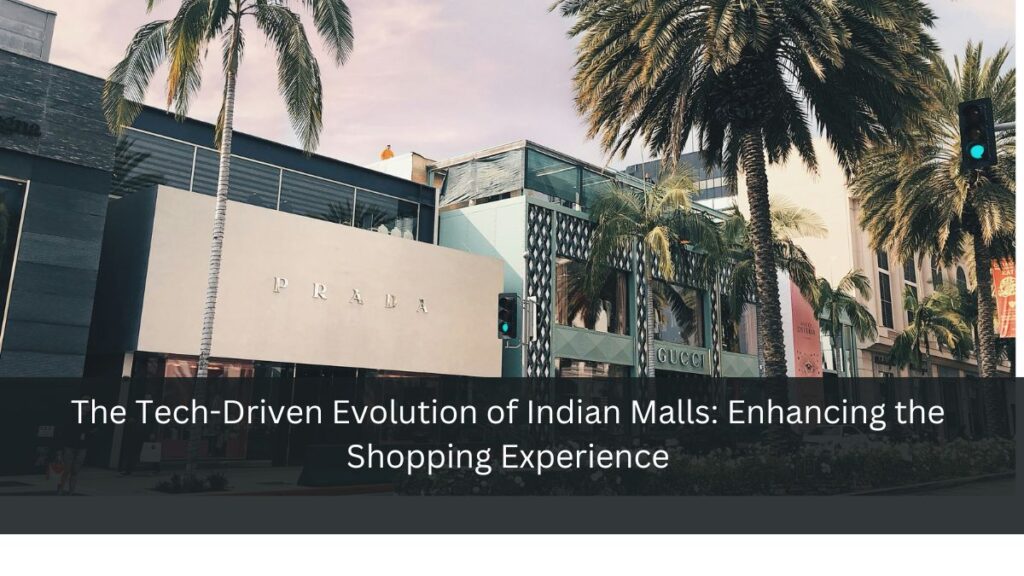In the rapidly evolving world of retail, Indian malls are undergoing a transformative journey to stay relevant and captivate the modern-day customer. By harnessing the power of the latest technologies, these shopping destinations are redefining the consumer experience, creating immersive and personalized encounters that go beyond the traditional brick-and-mortar paradigm. As malls adapt to the digital age, they are tapping into a wealth of data generated by every click, swipe, and purchase, unlocking valuable insights into consumer behavior and preferences.
Embracing Data-Driven Strategies
Leading the charge in this tech-driven revolution is DLF, the country’s largest developer. The company is revamping its loyalty app, which rewards mall shoppers with vouchers for their purchases, to provide a more seamless and engaging experience. As part of this overhaul, DLF is exploring innovative features such as guiding shoppers to stores offering special deals and discounts, as well as implementing facial recognition technology to gather demographic data. By leveraging these insights, malls can tailor their offerings to better meet the needs and desires of their patrons.
Moreover, DLF has implemented automatic number plate recognition systems to streamline parking and digital navigation tools to help visitors navigate the mall with ease. These technological advancements not only enhance the overall shopping experience but also demonstrate the company’s commitment to staying at the forefront of the industry.
The Rise of AI and Interactive Tools
Forum Malls, operated by Prestige Estates, has embraced artificial intelligence (AI) to revolutionize the way customers interact with their shopping centers. The company utilizes retail GPT, an AI-driven platform that offers real-time assistance, on-demand information, and valuable insights for retailers and customers alike. Additionally, Forum Malls has introduced a wayfinding app and a WhatsApp Chatbot, enabling shoppers to access interactive support and information through the popular messaging platform.
In a nod to the growing trend of automation, Forum Malls has also deployed smart robots to deliver food orders directly to customers’ tables. This innovative service not only adds a touch of futuristic flair but also streamlines the dining experience, making it more efficient and enjoyable for patrons.
Personalized Experiences and Targeted Marketing
As malls strive to create more engaging and personalized experiences, they are increasingly turning to data-driven marketing strategies. Oberoi Mall in Mumbai, for instance, encourages shoppers to upload their invoices to its Club Uno app, a reward program that incentivizes loyalty and repeat visits. The mall also leverages social media platforms like Instagram and Facebook to reach out to customers, informing them about ongoing activations, exclusive offers, and new store openings. By creating a sense of anticipation and excitement, Oberoi Mall entices shoppers to return for more.
Some malls are taking personalization a step further by employing geofencing technology. By sending targeted messaging to consumers’ phones once they enter a certain parameter within the mall, retailers can deliver highly relevant and timely offers, increasing the likelihood of conversion and fostering a stronger connection with their audience.
Embracing Sustainability and Convenience
In addition to enhancing the shopping experience, malls are also focusing on sustainability and convenience to meet the evolving needs of their customers. R City Mall in Ghatkopar has introduced EV charging points to support the growing adoption of electric vehicles, promoting eco-friendly transportation options. The mall has also implemented FASTag-enabled boom barriers to provide seamless and automated parking access, reducing congestion and improving the overall parking experience.
To further elevate the customer journey, R City Mall’s website offers real-time information about events, exclusive offers, and store locations, making it easier for shoppers to plan their visits and navigate the mall. Interactive directories have also been installed to assist customers in quickly locating stores, amenities, and services, ensuring a hassle-free shopping experience.
The Power of Data and Customization
Research from Accenture has revealed that over half of consumers are willing to share personal information in exchange for more customized offers. This finding underscores the importance of data-driven strategies in the retail industry. By leveraging this valuable data, malls can not only improve the shopping experience but also enhance safety and streamline daily operations.
For example, sensors installed in mall parking lots can monitor traffic levels and direct shoppers to less congested areas during peak hours. This technological implementation not only makes parking more efficient but also allows consumers to spend more time exploring the mall’s offerings, ultimately benefiting retailers and restaurants.
The transformation of Indian malls from mere shopping hubs to immersive, tech-driven experiences is a testament to the industry’s resilience and adaptability. By embracing cutting-edge technologies, data-driven strategies, and personalized offerings, malls are redefining the way consumers engage with retail spaces. As the line between online and offline shopping continues to blur, the successful integration of technology into the mall experience will be crucial in attracting and retaining customers.
Looking ahead, the future of malls lies in their ability to create unique, memorable experiences that cannot be replicated online. By harnessing the power of data, AI, and interactive tools, malls can deliver highly personalized and engaging encounters that forge lasting connections with their patrons. As the retail landscape continues to evolve, those who embrace innovation and adapt to the changing needs of consumers will undoubtedly thrive in this exciting new era of shopping.

